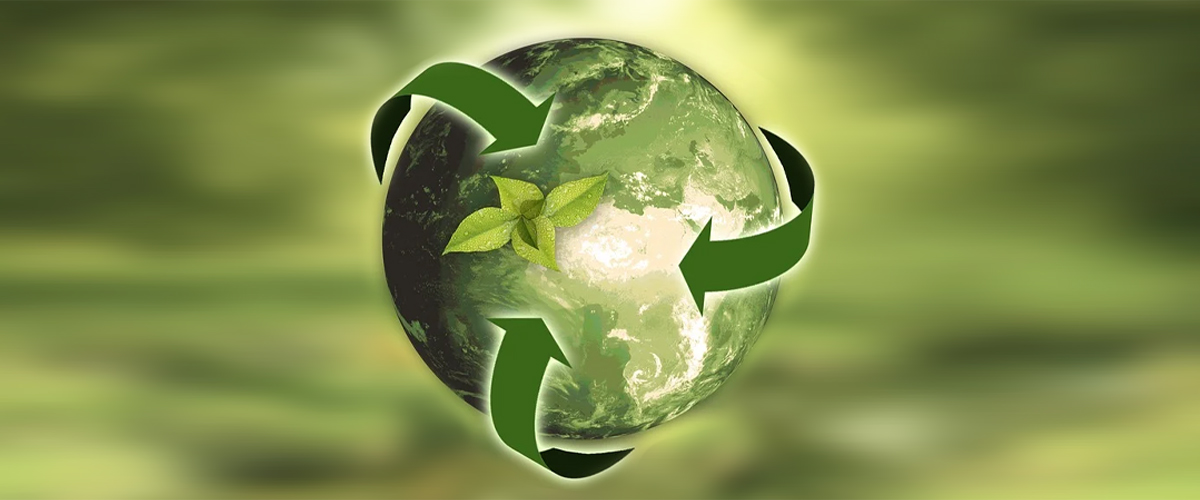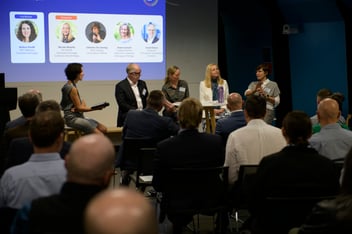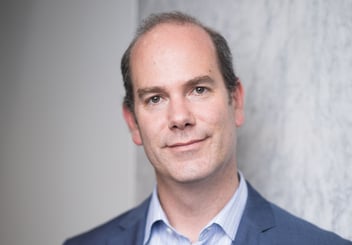How one global water company is bolstering the circular economy in water

Some of the biggest challenges facing the water community, including ensuring water security under a changing climate, sustainable resource management and decarbonisation, are underpinned by a need for a circular economy approach to solutions and partnerships.
Ozwater’24 Circularity Thought Leadership sponsor, SUEZ has 160 years worth of collective global water and wastewater management experience. During this time, there have been changes in thinking and approaches, with the most recent strategic focus of the Australia and New Zealand business leaning into the circular economy.
SUEZ Australia and New Zealand CEO Kevin Werksman said there’s no shortages of challenges facing the water community, but with innovation and partnership, sustainable and equitable outcomes can be achieved for communities and the environment.
“I believe the biggest opportunity for SUEZ in Australia and New Zealand is to embrace a true collective mindset. We can create an IP of collaboration and partnership driven by a hunger for bringing innovative ideas to overcome these obstacles together,” he said.
“As a Director on the Board for the Australian Water Association, I have a fabulous window into what’s on the mind of our industry. We’re actively working together to build a sustainable future, care for the environment and create liveable communities with safe drinking water and sanitation.
““In a world marked by volatility, uncertainty, complexity, and ambiguity, bringing people together highlights the criticality of innovation in mitigating risks and unlocking value.”
SUEZ Innovation and Improvement Manager Lisa Chan said the company’s investment in innovation, research and development brings diversity of thinking and solutions from around the world to bolster circular solutions within local Australian contexts.
“If we work within our own little sphere, it can be difficult to think outside of the box. But having that diversity of experience and thought makes for much more robust solutions,” she said.
“The traditional approach of take, use and dispose is linear, but it also doesn’t force us to look outside of our boundaries. If we are looking at a circular approach, we need to consider what we want to do with the resources we are producing.
“We need to work across industries, communities and governments to help them to understand that we are producing something of value to them, and bring them into the discussion. It’s about ensuring we all be part of the solution to maximise the value of our finite resources.”
Circular mindset
SUEZ Innovation and Growth Vice President Stephanie Clarke said the global water industry now recognises that the circular economy is imperative to decarbonising processes on the way to net zero.
“Water is absolutely essential to life. We can’t service our communities and economies without water. But we also need to decarbonise this essential service. And circular economy principles will be crucial in achieving both these needs,” she said.
“But then there’s also the huge amount of resources embedded in what we have, until recently, been considering ‘waste’. We have to make sure we capture all the resources in this stream. There is a lot of nutrients and value in this resource that goes down the drain.
“There is so much energy in wastewater, much more than we need to actually process it. We need to lean into that resource, too, and use it to decarbonise our processes. We should be reusing everything that comes into sewage networks and find another market for them.”
SUEZ Victorian Desalination Plant Director Julien Tauvry said the circular economy is also critical to ensuring water security as the climate continues to change.
“From a water resource point of view, the biggest challenge we have at the moment is scarcity, especially with the variability of the climate. We have more uncertainty now around the quality and quantity of water available, and how we can sustainably access it,” he said.
“The circular economy really takes a global view of the ebbs and flows of our water resources and their interaction with the environment. We are moving away from a linear approach to problems, with inputs and outputs. We are turning that concept on its head, understanding that inputs can be outputs and vice versa.”
Chan said the Australian water sector has always been a leader in the promotion of water conservation, and is currently positioned well to take the lead on circular economy approaches, too.
“The water sector now acknowledges that we need a circular approach to make sure we are regenerating our water resources. To meet the UN SDGs, we need to consider resources from a circular perspective,” she said.
“The water sector is in a prime position to be demonstrating itself as a leader in circular economy principles and also focusing on sustainable outcomes.
“Every industry requires water. There is an opportunity for the water sector to be a thought leader across sectors, but also governments, economies and communities, to bring us all into considering truly circular solutions.”
Biofactory benefits
SUEZ Head of Major Projects Rachael Nuttall said the company has developed the concept of a biofactory, viewing effluent as a source of energy, minerals, rare materials and water, with opportunities to generate sustainable outcomes, and even new revenue.
“The circular economy is all about transitioning away from using resources and then discarding them. SUEZ has built our first Australian biofactory in Victoria. It’s a water treatment plant that recovers resources from sewage,” she said.
“Some of the innovations developed and included in the biofactory are improved biological treatment, anaerobic digestion which enables us to recover energy by reusing the carbon in the water, and advanced digitalisation to optimise those processes, but also improve plant operations to move towards zero unpredicted events.
“Biofactories utilise the components that make sense from both an environmental and financial point of view for each project.”
Nuttall said the first Australian biofactory involved the upgrade of an existing wastewater treatment plant, with key augmentations allowing for more circular approaches.
“Instead of having to build new assets, we can add these innovations as we go, getting more out of the existing facility, as well,” she said.
“So it’s also about reducing the amount of new concrete and materials to achieve the same outcome. It’s about using assets more effectively.
“Every project has its own particular drivers. We are looking for projects where we can create a real difference to communities. We are on the lookout for projects where we can help to reuse resources in a smarter way.”
Resource custodians
Underpinning SUEZ keen focus on developing and implementing circular economy solutions is the company’s purposeful positioning as a resource custodian learning from the culture and values of the Traditional Owners of this land, pointing to a new era of commitment and responsibility.
“Being a resource custodian is about long-term, intergenerational sustainability, where we focus on people and places. It is about bringing people together as equals, bringing their perspectives and their knowledge, and continuing to work together to care for Country,” Clarke said.
Tauvry agrees, stating that SUEZ work is not just about doing business, but also about doing good for communities and the environment.
“The circular economy needs to link back to resource custodianship. It’s a recognition that our resources are finite and very fragile. We are also looking after these resources on behalf of future generations,” he said.
“This is about understanding the ‘why’. Most water utilities and engineering companies have spent a lot of time focusing on the ‘what’ and the ‘how’. But now, we have a different approach. It’s about really understanding where water fits into the bigger picture.
“Very important to SUEZ and our role as resource custodians is to ensure that what we are engaging with has a social license attached to it. A lot of projects don’t consider the benefits of the work they are doing to the wider community.
“We will be quite selective in the way we will respond to projects moving forward to ensure they fit within our idea of resource custodian responsibility, as well as social license. This is about addressing the ‘why’ before we move into the ‘what’ and ‘how’.”
Interested in learning more about the circular economy at Ozwater’24? Register here.



